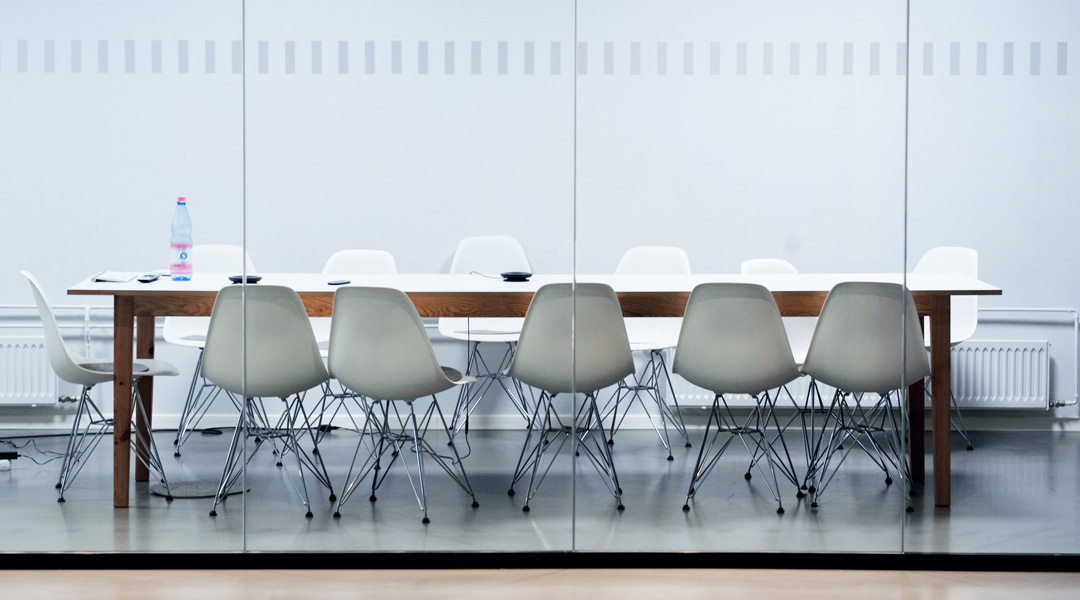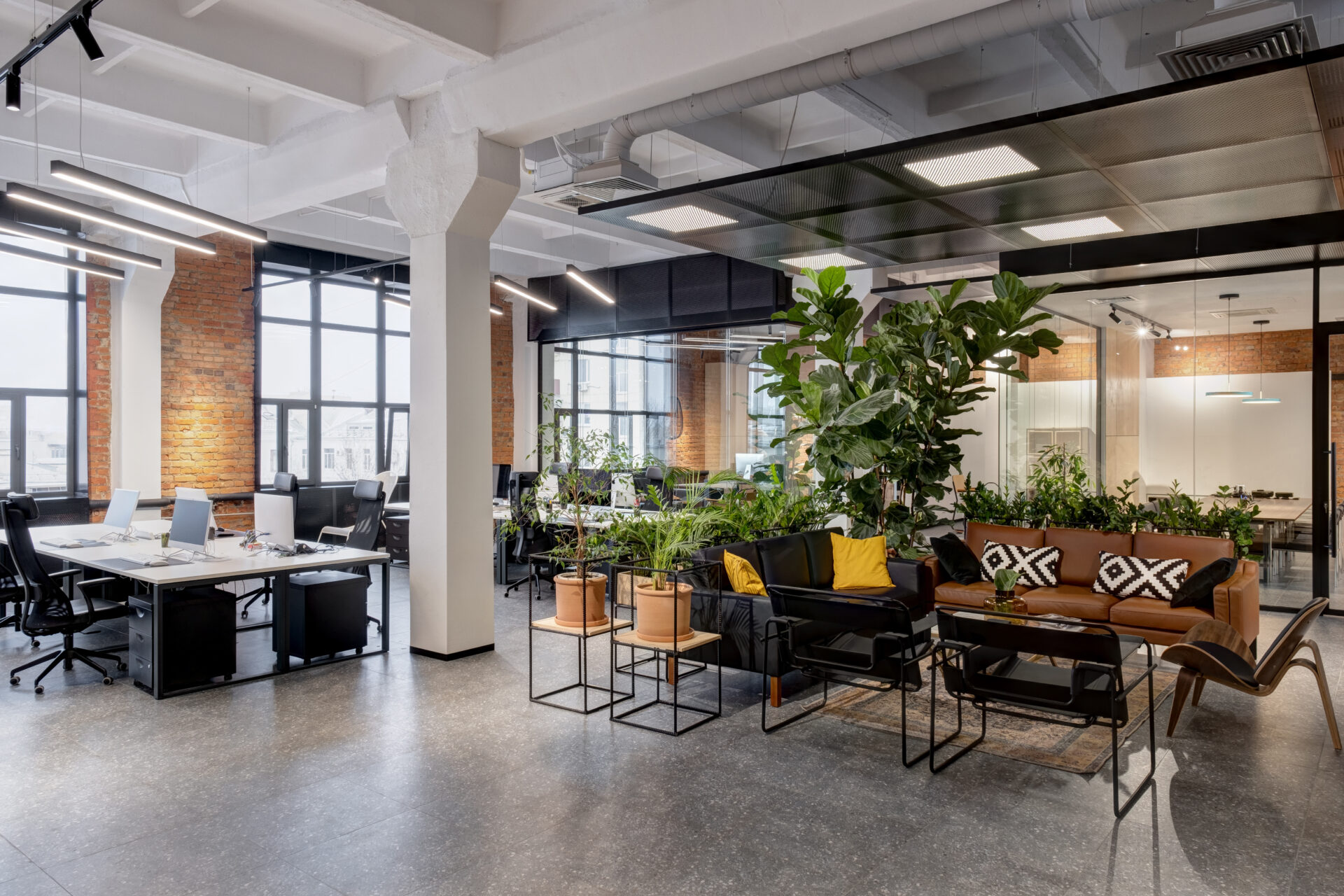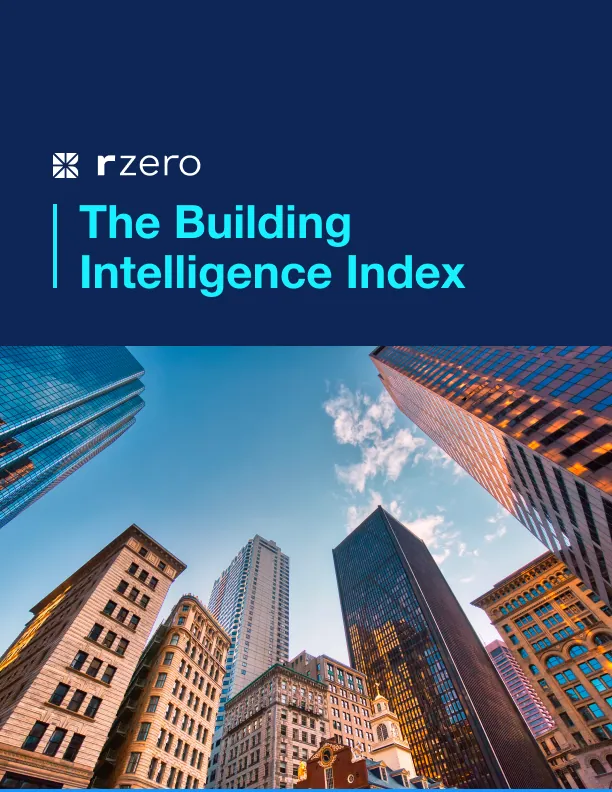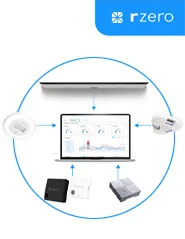
Facilities Management Trends in 2021
Facilities Management is a crucial, and sometimes underappreciated, aspect of any business where an office or workspace is a necessity. Proper FM balances both employee experience with cost-balancing measures and is crucial to a comfortable, well-functioning workplace. In 2021, as businesses are returning to work but stay mindful of lessons learned during the pandemic, FM is about finding smarter ways to make assets work for a business.
Workplace data analytics
The first step in managing an office or workspace is getting an idea of how it works. Modern smart facility software uses sensor technology and integrated IoT that works in the background to capture a full picture of how your workspace is functioning while requiring fewer resources and user-unfriendly third-party apps that compromise your privacy.
R-Zero’s workspace occupancy sensors are accurate, wireless space sensors that discreetly monitor data points like real-time space occupancy and headcount. Analytics can even tell you how many people are in a single conference room or meeting space at any given time. Coupled with Cloud-based data storage, Facilities Management technology collects data in real-time from around your workspace. A survey from national design firm Vocon found that 18% of companies surveyed are planning to install occupancy sensors this year.
Reliable data leads to real-world applications that can save a company millions of dollars over years—if not immediately. IoT-enabled Facilities Management technology can lead to real-word time-saving applications like taking instant, accurate headcounts, for example, or meeting room sensors can eliminate costly scheduling errors, or “Ghost meetings,” which can cost a business 30 hours of wasted time each month.
Hybrid scheduling
In response to the Covid-19 pandemic, many businesses pivoted to work-from-home or hybridized scheduling models—and more than a few are sticking to it. 66% are implementing a hybrid model with on-site office and remote work, and 88% reported that their team’s productivity stayed the same or even increased due to flexible scheduling during the pandemic.
Hybrid scheduling reduces employee burnout and is being implemented to attract and retain talent, but having half your employees in the building at a time also presents saving opportunities for imaginative Facilities Managers. Office capacity calculators are tools that businesses can use to determine how many employees are in the building at different times, and how much space they actually use. With a rotating personnel schedule, many companies are starting to consider the skyrocketing cost of retail space when returning to work, and as many as 35% are planning to downsize.
Remote monitoring and social distancing will also likely have continued importance in 2021. Smart facility software like R-Zero’s can provide a live heat map of your office or workplace, meaning managers can see exactly which desks are taken at which times. This makes it easier to enforce proper social distancing and ensure that employees are occupying the desks they are supposed to use—simultaneously making the workplace safer in the midst of the ongoing pandemic and increasing employee accountability. Modern Facilities Management is about finding the tools to balance employee schedules and experience with innovative cost-saving measures.
Energy and resource management
Forbes has found that large companies around the world are beginning to rethink their energy management systems. Climate control and lighting can cost businesses hundreds of thousands of dollars per year—and that’s including the spaces that go unused. Other factors like increased fuel costs and environmental regulation may start to eat into a business’s bottom line, so finding efficient ways to manage energy consumption will remain a top priority for the Facilities Management industry in 2021 and beyond.
Data procured by R-Zero’s office occupancy sensors can be used in conjunction with smart lighting systems to control which rooms are lit more effectively than traditional motion sensors, for example, or used with climate control technology to create a custom heating and cooling schedules wherein Facilities Managers could adjust the temperature in rooms only currently being used. A data-driven approach can save money in virtually all utilities like sanitation, ensuring that custodial crews focus on areas that have seen foot traffic throughout the day, while leaving the untouched areas alone.
The Covid-19 pandemic caused a global reshuffling of how we do business, meaning that facilities management technology will play a huge role in the “new normal” faced by employees and business owners in 2021. But as companies rise to the challenge of operating in a post-pandemic world, Facilities Managers have the tools to rethink even the basics of how an office or workspace is used, resulting in better cost-saving, happier employees, and a more efficient business.
More posts you might like
-

Why should I improve indoor air quality (IAQ) & indoor environmental quality (IEQ) in my buildings?
The Importance of Healthy Indoor Air Quality Clean air and proper ventilation indoors is crucial for the creation of high-performance work places, classrooms, and healthcare environments. It’s also essential in fostering comfort, productivity, and well-being for your building occupants. Imagine walking into a building optimized for health and comfort. The air feels fresh and light. […]
-

How to Improve Indoor Air Quality in Your Buildings
As a building owner or operator, ensuring optimal indoor air quality (IAQ) in your spaces is essential for the well-being and productivity of your tenants and occupants. To help you get started, here’s a guide to ensure you are meeting indoor air quality standards across your real estate portfolio. Understanding Indoor Air Quality Standards To […]
-

The importance of indoor air quality testing in office buildings
In today’s workplace, ensuring a healthy and productive environment for employees is crucial. One of the most significant factors influencing workplace well-being is indoor air quality (IAQ). As part of our focus on smart buildings, R-Zero offers advanced indoor air quality testing solutions like the R-Zero IAQ Monitor, designed specifically for enhancing occupant comfort and […]

